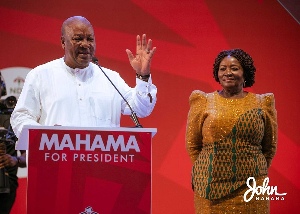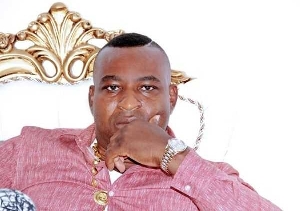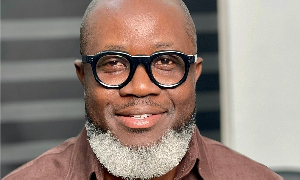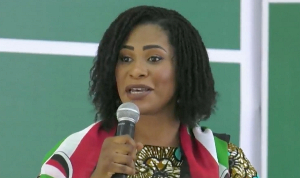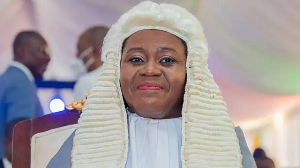The elections are here once again, with baskets of sweet-pot campaign promises by politicians. The presidential candidates of the two well-established parties, the NDC and NPP, have set the motion ablaze by crisscrossing the country and asking for the people’s mandate in the presidential and parliamentary elections scheduled later for this year.
After his re-election for the third time as the presidential candidate of the National Democratic Congress (NDC) a year and two months ago, John Dramani Mahama has finally launched his campaign in the Northern Region town of Tamale to enable him to make a third attempt at the presidency after making history in 2016 as the first sitting president to lose a re-election bid.
While it remains largely sketchy what specific message the John Mahama campaign team would be carrying to the doorstep of the Ghanaian voter, the decision to launch his campaign in Tamale shows his vulnerability to win convincingly in the Northern region. Ordinarily, the campaign launch should have been in the Central Region (CR), where John Mahama’s running mate comes from.
Since CR missed the outdooring of the vice presidential candidate, Professor Naana Jane Opoku Agyemang, one would have expected the campaign launch to be held there to boost and woo voters in the region. The Central Region plays a pivotal role in Ghana’s electoral history.
Historically, any party that wins the region also wins the general elections. This trajectory has not changed since the 1996 elections. The region is not only a swing one but also the fourth most populated region in terms of eligible voters, with approximately 1.8 million registered voters, according to the recent data shared by the Electoral Commission of Ghana.
In 2008, when Nana Addo lost marginally to Professor JEA Mills with 40,000
votes, the NDC still won the CR with a marginal percentage of 50.6%. Therefore,
electorally, CR is a battleground in Ghana’s presidential elections and can be likened to the 2024 ‘key states’ in the US, including but not limited to Michigan, Pennsylvania, and Wisconsin.
From a historical standpoint, the NPP has won CR more than the NDC, although the
NPP has never had a presidential or vice-presidential candidate from the region. The NDC, on the other hand, has had both presidential and vice presidential candidates from CR since 1996, but this hardly translates into a consistent win for them. Currently, the NPP has won the region four times (in 2000, 2004, 2016, and 2020), while the NDC has won it three times (in 1996, 2008, and 2012). In terms of ‘electoral correctness,’ I would argue that the CR has validated American political scientist Samuel Huntington’s theory of ‘’two consecutive turnovers’’ of political power between the two major political parties.
Interestingly, except for JJ Rawlings, who won the CR with 55.2% in 1996, the NPP has won the region with much bigger percentage margins, with JA Kufour’s 58.8% being the highest any presidential candidate has ever had from the CR
since constitutional democracy. Even when JJ Rawlings ‘anointed’ the then vice
president, Professor JEA Mills, a son of the CR, as the NDC’s flagbearer in 2008, the party only managed to win the CR with a paltry 50.6%.
Even more compelling about this data is that whenever NDC loses the CR, they often do so with a much lower percentage point, with the lowest of 38.9% in 2004 compared to NPP’s lowest percentage of 43.3% in 1996. Therefore, for the NDC to be sure of winning the election in 2024, they must prioritize CR and be seen to be actively working to win the region. From a psephologist standpoint, the chances of the NDC losing the CR region in this year’s election and therefore the general election are more profound than the NPP's chances of losing.
The point here is that NDC’s vote in the Ashanti region is more than the votes
they get in the Volta region, although Volta is their ‘world bank.’ Therefore, the NDC doesn’t need the Volta region to win the presidency; likewise, the Northern Region. This is because these regions have a small voter population. Moreover, John Mahama has been around for decades, and if he cannot win his home region and the party’s stronghold, then he is not a worthy candidate. However, the NDC cannot win the presidential elections if they don’t win the Central region.
If CR is this important to both political parties, why is the NDC ignoring the region and focusing on areas such as the Northern Region, which ordinarily should be an easy win for them? The NDC’s campaign launch should have been in the Central Region where the party has already lost four times to the NPP and continues to stagger with its numbers at the polls. Considering that the vice-presidential candidate of the party also comes from there, this would have presented the party and the Veep candidate a better opportunity to set in motion her ‘parallel’ campaign in the region.
But it does appear that the presidential candidate of the NPP, Alhaji Mahamudu Bawumia (PhD), has sent shivers down the spines of John Mahama with his huge crowds and the gains he is making in the Northern region, hence the decision to launch the NDC campaign in Tamale. The battle to win the Northern Region has never been this appetizing for both candidates, given that they both (technically) come from there. But what is surprising is John Mahama’s inability to consolidate his ground in the North after spending more than three decades in politics as an MP, deputy minister, minister, vice president, and president.
Unlike Dr Bawumia, who is a technocrat and an academic, John Mahama has
spent his entire life being a politician. It is therefore surprising that John Mahama could hardly pinpoint any place in the North where he is ‘cock sure’ of winning resoundingly. No doubt Dr. Bawumia’s popularity among voters in the North has become a ‘nightmare’ for John Mahama, hence the reactive decision to have the NDC's campaign launched there.
Nevertheless, given the historical trajectory of John Mahama’s performance in the North, there is the potential that Dr. Bawumia can flip the entire Northern region, including the new Northeast region, for the NPP. Dr. Bawumia’s strength comes from two cut-out factors. first is the religious factor. Secondly, he is the new face of the North, given that John Mahama has had five opportunities to turn the story around but failed to.
Although John Mahama has sealed his influence in the NDC as the most successful
politician produced from the Northern region, and even though the NDC continues to win the presidential elections in the Northern region routinely, the only time they won above a fifty-percentage mark was in 2004, with 61.1%. Even when John Mahama became the flagbearer of the NDC in 2012, the party recorded a marginal loss of 0.2% from 58.6% in 2008 to 58.4%. Furthermore, the NDC recorded a 2.5% drop in their vote between 2012 and 2016, from 56.1% to 52.6% in 2020, representing a 3.5% drop in votes with John Mahama as the repeated candidate.
On the other hand, the NPP has seen a steady increase in votes in the Northern region, from 38.1% in 2008 to 46.4% in 2020, with an average increase of 6% since Dr. Bawumia became the Veep candidate for President Nana Addo. In addition, the electoral map shows that when a candidate other than John Mahama is on the ballot, the NDC performs better in selected constituencies in the North. For example, in 2008, when the late President Atta Mills was the candidate, the NDC won the Kumbungu constituency by over 70%, while John Mahama managed to win it by just a little over 60% in 2016 and 2020. John Mahama’s political journey as a Northerner has had a minor impact on the NDC's vote in the Northern region.
For example, in selected constituencies where the NDC won in the presidential
In the elections, John Mahama had far fewer votes than the NDC parliamentary candidates. Similarly, before John Mahama became the frontrunner candidate in the NDC, the NPP had only three constituency seats to the NDC's 12 seats. However, NPP has since witnessed a significant swelling in its number of seats, from 3 in 2008 to 6 in 2012.
Currently, the NPP has not only closed the gaps in their seat share, but they now have the same number of seats (nine seats) as the NDC. Given that there is no guarantee John Mahama can win the Northern region convincingly based on available data, the party should be looking at maximizing its votes by focusing on swing regions like the CR. But the NDC is banging their hopes of winning the election on "goodwill" and public resentment against the ruling government.
Again, the NDC has been banging its hopes on algorithm-generated polls, although historically, the party has been hostile to electoral polls. The reality is that the NDC's hope of winning this year’s election is far from over. To make matters worse, the vice-presidential candidate of the party is already suffering from a ‘visibility’ crisis exacerbated by the chaotic nature of the campaigns. Professor (Emerita) Naana Jane Opoku-Agyemang is less inspiring to voters, and often, it is unclear what her achievements are. It is therefore not surprising that the NDC would rather highlight her gender than her achievements at the Ministry of Education.
People may argue that the vice presidential candidate would not be on the ballot on election day. But the optics for choosing vice presidential candidates are to appeal to a certain base of the electorate who otherwise may be unwilling to vote for the main candidate. Dr. Mahamudu Bawumia selected Matthew Opoku Prempeh (MD) because he wanted to appeal to the party’s base in their stronghold. In this regard, if Naana Jane Opoku-Agyemang cannot inspire any of the party members, this leaves the party vulnerable at the polls.
It is against this backdrop that the NDC’s strategy must change from a reactive campaign to one that is more focused on vote maximization, but this is achievable only if they focus on regions that make presidents. The NPP has a much better strategy. Also, they have a presidential and vice presidential candidate whose spouses can be allocated a special campaign route.
One effective way to win an election is to spread the campaigns. So far, it appears Naana Jane Opoku-Agyemang is not on the campaign trail, and this could spell doom for them at the poll.
Opinions of Monday, 29 July 2024
Columnist: Prince Bansah

